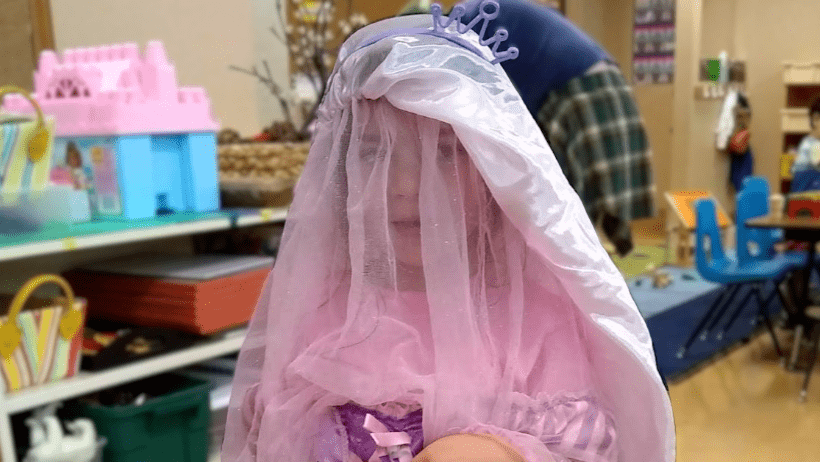Every morning my daughter’s preschool class begins with free play. There are options to play blocks, or draw, build or explore. Nine times out of ten, though, Shiri is playing dress up. Sometimes the outfits are hilarious, with as many layers piled on as she can put on her body. Other times she’s a doctor, a waitress, a princess, or a mommy. Imaginative and creative play are staples in our preschool classrooms because they allow our children to try on different roles, explore what it means to be the leader or a follower, and discover what feels comfortable and what feels unique and different. It’s natural for there to be a lot of gender fluidity in early childhood development. That doesn’t mean that genders are changing, it just means children are experimenting with different roles. Play is without gender or stereotype at this age, and there is great strength and beauty when children explore their world to find their authentic selves.

As adults, it’s easy to get stuck in a rut being who we think we’re supposed to be instead of being our best selves. This challenge of human adult life has been around for a while, and in fact the same thing happened to Abraham. This week we read Parshat Lech Lecha. In Parshat Lech Lecha, we are finally introduced to Avram and Sarai – later Avraham and Sarah – who become the great patriarch and matriarch of the rest of our narrative. We learn that Avraham follows God with full intent, without questioning, and that Sarah goes with him. God tells him to leave his home, leave the only house he’s ever known, and go to a place he knows nothing about. He’s following God’s voice and taking a leap of faith.
The text begins, “The Lord said to Avram, ‘Go forth from your native land and from your father’s house to the land that I will show you.’” A literal translation of lech l’cha is “go forth” or “betake yourself.” However, the Mei Hashiloach, a compilation of the teachings of Rabbi Mordechai Yosef Leiner, translates this in a midrash as, “Go forth to find your authentic self, to learn who you are meant to be.” In other words, the text lists the various levels of “leaving” or “exploration” which a person must go through in order to identify who their true, authentic self is.
To add this concept to what we already know about Avraham, finding yourself isn’t simply deciding to be the true you; it’s physically seeking out that person. In order to be your best, most authentic self, there’s a journey to travel, and the hardest part of the journey is the possibility that some less authentic part might be shed in order to make a new discovery. But as we learn with Avraham, we must go forth and explore – only then can we be sure to bring our gifts into the world.



